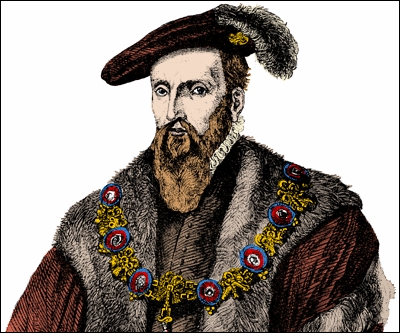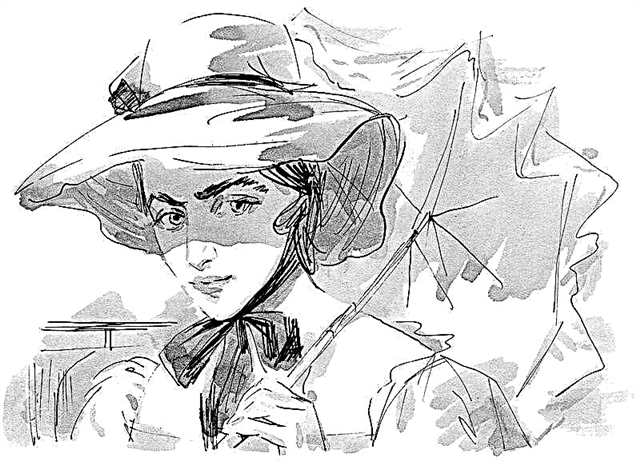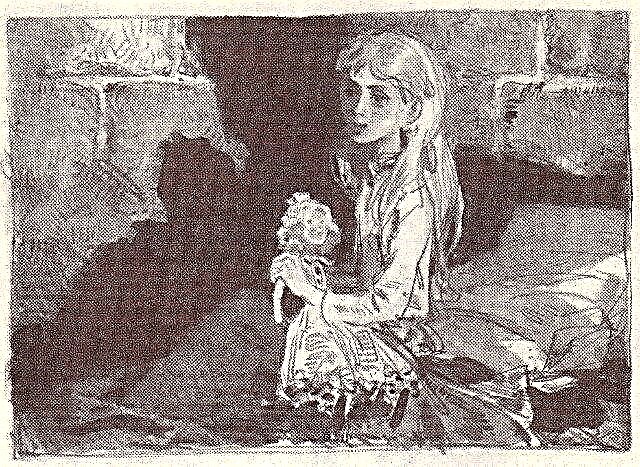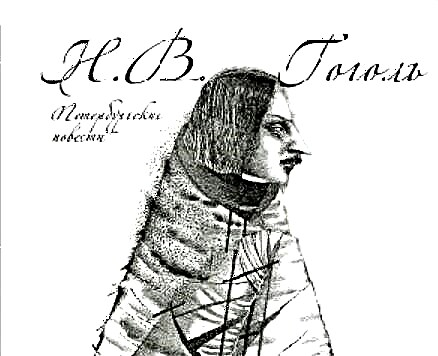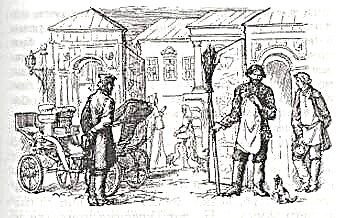In the preface chapter “To the Reader,” the author is introduced as a front-worker shaking hands with representatives of all parties and camps. His acquaintances have darkness and darkness, but he does not seek anything from them, except for "good intentions," it would be nice to sort them out. Let them hate each other, but often talk the same thing. Everyone is preoccupied with curbing methods. The world outlook of the vast majority of people is based on this idea only, although it has not been sufficiently explored and even slandered by fanatics and hypocrites. And therefore, the urgent need of modern society is becoming free from liars, because the true heroes of "curbing" are not at all theoreticians, but simpletons. Like the lunatics, these latter decide to overcome all kinds of obstacles and sometimes even perform feats without the intention to complete them.
"Why is the story written?" - the author asks the question in the first chapter, which is a travel sketch. “Ah, if only then, gracious sovereigns, to state what well-meaning speeches are.”
The Russian people have become weak on all tiers of modern society. The man is weak, but the enlightened master is no better, the German defeats him everywhere. It hurts, we are simple! “But, as it often happens, Russians are fooled when buying, not because they are stupid, but because it doesn’t occur to them that in a country where there is police everywhere, fraud is possible. "Do not be an idiot!" This foul and impudent word "fool" directly and indirectly haunts the author, as a panegyric to fraud, appropriating the name of the mind.
A good administrative officer, who relies on large bosses, is distinguished by the innate nature of conservative beliefs and combat readiness to go wherever they send by the first trumpet sound. The bureaucrat of the newest temper is Derzhimorda, "a cleaned, smoothed, straightened joker, ready to eat his own father with porridge." It is impossible to imagine a single Russian boss who would treat himself with irony, with reservations, this is a pompadour who is always serious or recklessly rambling.
For good administration, Russia needs spies. But for some reason, the Russian spy was dead, it’s said about him: “He dries onuchi in the water.” He never knows what he needs, and therefore overhears in vain. And once overheard, everything falls in one pile. He is ignorant, amazed at trifles and scared of ordinary things, passing them through the crucible of his unbridled imagination.
Frank confessions of Nikolai Batishchev in letters to Mama let you know that in the public service you need to be zealous, but know the measure. Wanting to become a prosecutor, under one name of which the criminals will tremble, Batishev, as an assistant, cooks up cases against innocent people and categorically supports all strict indictments. When he is asked to deal with the Society for Anticipation of the Harmony of the Future, which lists fifteen people urging them to patiently endure the disasters of the present, Batishev attracts up to a hundred people in this case. His zeal confuses even the sophisticated general. Having realized his unsuitability for the prosecutor’s case, the young man resigns, cursing fate and his “honesty”. In the postscript of letters addressed to mother, Batishchev, in parallel with the history of his administrative failure, talks about the successes of a friend who became a lawyer, a certain Erofeev, who learned to make good money and put it into circulation.
Who are the pillars of modern society? Where are their roots, what is their origin, how is the money that they own accumulated? Here is an example, Osip Ivanovich Derunov, who contained an inn, through which hundreds of people passed and passed. According to the dime, according to the five-altyne coin, Derunov accumulated a considerable fortune, which made it possible to open his own large farm and to acquire a factory. At the last meeting with him in St. Petersburg, the narrator hardly recognizes him in a fur coat trimmed with light sable fur. Accepting a proud pose of an aristocrat, he stretches out two fingers with a slurred motion in greeting. Having invited a man of letters, who, unfortunately, is not Turgenev, he wants to please a languid, whitewashed wife who receives four “kalegvards” in an expensive half-lying in the living room. Assessing the society he fell into, the writer fantasized “an incident in the Abutz Mountains,” a story worthy of a Russian fiction writer who fascinates a lady with her adventures. Despite the luxury and richness of the new situation, the narrator regrets recalling that Derunov, who did not take off the old Testament blue frock coat, which helped him convince the German merchant of his thoroughness. True, with the disappearance of the previous situation surrounding Derunov, the mystery of squeezing a penny from a guest, partner, and interlocutor also disappears. Now he is brazenly lusting for robbery, and this cannot be hidden in any way.
The author, nicknamed Gambetta, that is, "an inveterate man who does not recognize anything holy," has to talk on the women's issue with a responsible official from former classmates Tebenkov, who calls himself a Westerner and a liberal. However, he is not even a liberal, but a conservative. In total, her ignorance is more precious to him in a woman; he sees in him well-intentionedness. How can a woman derive any real benefit from all sorts of permissions, permissions, knowledge? He cannot be convinced that a woman can do a job better than a man. Well, if there are still women who will go into reform and revolution, then there is nothing to write about. All their “virtues”, shown at the family level, will come out. We will have to change all ideas about virtue, about the magnificent victories of women over adultery, about maintaining family ties, and raising children. “And what will become of us that we cannot exist without not spoiling a woman?” The pillar of Russian liberalism Tebenkov is ready to accept not an arbitrary, but an arbitral decision. “My system is very simple: never allow anything directly and never forbid anything directly,” he says. From his point of view, a woman, especially a pretty one, has the privilege of being capricious, desiring diamond jewelry and furs, but should not talk about amniotic fluid and Sechenov’s theories, otherwise she would seem “unintentional”.
Maria Petrovna Volovitinova has three sons: Senichka, Mitenka and Fedenka. Senichka is a general, Mitenka is a diplomat, and Fedyonka is not serving, he is simply an "empty, small and positive yergy." And only the last child-loving mother wants to leave a big inheritance, so other children and relatives annoy her. She really likes the “robber” beginning in her last son, and she forgives everything to him and is ready to give it, to the fear and horror of her eldest son, the general, who unsuccessfully dreams of receiving at least something from her as a present.
The correspondence of Sergei Prokaznin with his mother, Natalie de Prokaznik, testifies to how insightful women are, who can correctly instruct their sons and positively be intelligent. Roaming with his regiment, Sergei Prokaznin, in his spare time from exercises, has the pleasure of falling in love and dragging, and even having a third older lady on sight, a widow who shows remarkable interest in him. A thin observer and psychologist, a mother, not without knowledge of female nature, instructs her son in his heartfelt politics, telling something about his French lovers. She doesn’t particularly like her son’s intention without long conversations to “make“ Fuck! ”And end it once and for all.” The salon of a true secular woman is not an arena or a refuge for miserable pleasures. The correspondence between her son and mother could have continued for a very long time if she had not been stopped by a short letter from Semyon Prokaznin, in which he reports that he has read all the letters of his son, from which he learned that his son is “committed to adultery,” like his mother who fled to Paris with a Frenchman, and therefore if he wants to somehow save his father’s disposition, then let him return to his parental estate and begin to feed the pigs.
The story of Maria Petrovna Promptova, the cousin of Mashenka, allows us to make a sad conclusion that marriages of young girls with elderly slow-witted husbands do not benefit them. From smart and pretty, friendly and interested, they turn into prudent and sleepy-patriarchal, closed to good speeches. The stubborn observance of all the Old Testament precepts of the spouse, the assimilation of the passion for hoarding makes the once cheerful cousin Mashenka a monster, mutilating the fate of her own son. The air creature turned into a hypocrite, a hypocrite, a miser.
In search of the ideal and the opportunity to lay the foundations of a new “careless Russian life”, it would be good for fellow citizens to have a clear idea of the state and why it is needed at all. “To the question: what is a state? Some mix it with the fatherland, others with the law, others with the treasury, fourth, the vast majority with the authorities. ” Public feelings are often absent, everyone is busy observing their own interests, their own benefits, so other suppliers can put on boots with cardboard soles, keep them starving and send them with a mediocre boss to where there will be no return. There is a lot of noise in conversations about serving the fatherland, but in reality patriotism turns into a rude betrayal, and those responsible for it are transferred to another job. The people are a child, kind, smart, but to deceive him, to circle around a finger is worthless. Russia is overflowing with “well-meaning” officials who are undermining its forces and assets.

